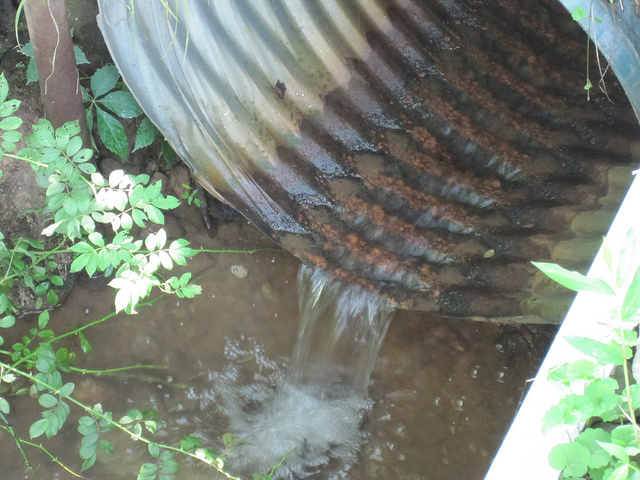 On July 31 of this year, the current General 402 Permit for Coal Mining expires.
On July 31 of this year, the current General 402 Permit for Coal Mining expires.
Under the Kentucky Pollution Discharge Elimination System (KPDES), all water that leaves a mine site has to go through a pipe, which needs to be permitted so that the water can be monitored to know if it exceeds pollution standards.
Look for more information from KFTC once the first draft of the next General KPDES Permit for Coal Mining has been released. There will be an opportunity for the public to submit comments, and there likely will be a public hearing on the draft permit. Approval from the federal EPA also is required.
Coal companies have the option of either applying for an individual KPDES permit or applying to have their water discharge covered by the KPDES general permit for coal mining.
The general KPDES permit is a five-year permit developed by the Kentucky Division of Water (DoW) in order to create a streamlined process for various types of activities that discharge pollution into the streams and lakes of Kentucky. DoW must update and renew that permit every five years.
There can be a general KPDES permit for municipal sewage treatment plants, or for high schools, and there is a general permit for active coal mines and for inactive coal mines.
The general permit requires less scrutiny for potential damage to waterways and uses a “one size fits all” approach.
Aside from the difference in fees ($1,300 for a general permit and $3,300 for an individual permit), the major difference between the two is that each individual 402 KPDES permit is subject to review by the federal EPA.
Over the last few years, EPA has found reason to request additional testing and pollution discharge restrictions on about 36 individual permits, while the Kentucky Division of Water has allowed thousands of new mines and amended mine permits to be covered by the general coal mine permit.
In meetings with the Kentucky Division of Water, KFTC members have expressed their belief that Kentucky should stop using the general KPDES permit and instead require all coal companies to apply for individual permits.
They pointed out that each coal mine and each stream is different and the pollution limits should be tailored for the specific pollution coming off of each mine site.
In addition, if previous mining has already polluted a stream, then new mines should not be allowed to discharge additional pollution into the stream.


 On July 31 of this year, the current General 402 Permit for Coal Mining expires.
On July 31 of this year, the current General 402 Permit for Coal Mining expires.
 KFTC member and Kentucky author Silas House published a young adult novel in 2012 called Same Sun Here, a collaboration with New York City author Neela Vaswani. The book is a series of letters between River Dean Justice, who lives in eastern Kentucky, and a girl named Meena, who lives in New York City. House talked with KFTC recently about the book.
KFTC member and Kentucky author Silas House published a young adult novel in 2012 called Same Sun Here, a collaboration with New York City author Neela Vaswani. The book is a series of letters between River Dean Justice, who lives in eastern Kentucky, and a girl named Meena, who lives in New York City. House talked with KFTC recently about the book.

